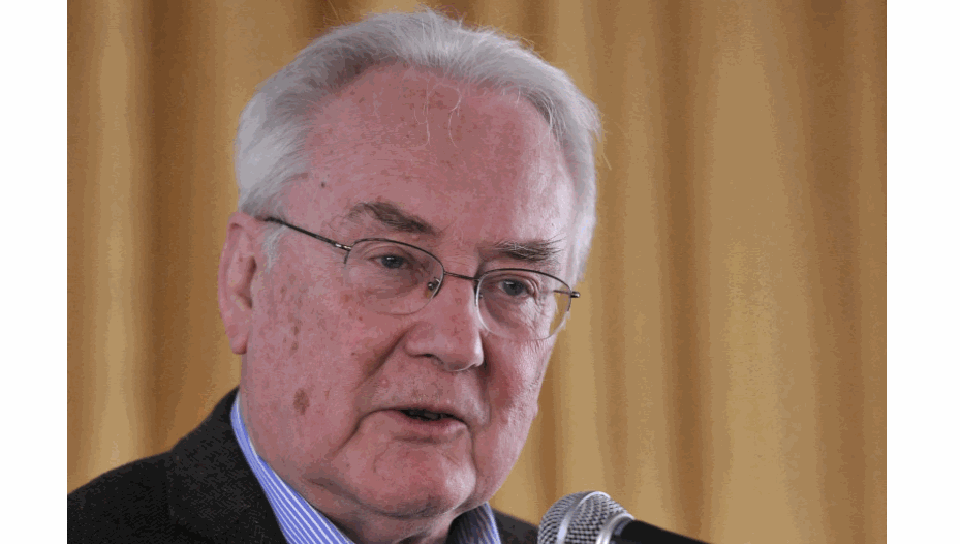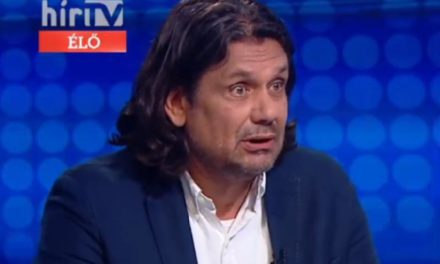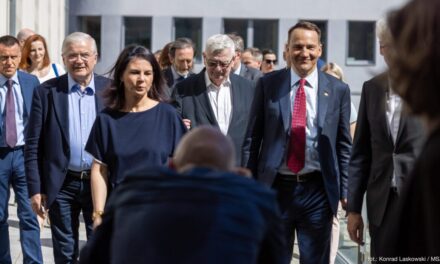Based on Monday's statement from the left, the left-wing parties agreed to nominate Péter Róna as head of state. Economist András Simor, who before György Matolcsy (and after Zsigmond Járai), between March 3, 2007 and March 3, 2013, was the president of the Magyar Nemzeti Bank (MNB), i.e. the appointee of Ferenc Gyurcsány, (Note: in this regard, Márki- Péter Zay's announcement that Gábor Iványi would be the candidate for president of the joint republic also turned out to be a lie. However, Klára Gyurcsányné Dobrev was present at the announcement, whose eyes didn't even blink...)
Péter Róna caused total chaos and huge losses at NABI in Kaposvár, which deals with bus production, a complete lack of transparency was established, and then he and his son were fired from the company. The company has since ceased to exist. Former left-wing central bank president András Simor drew attention to the left-wing republican presidential candidate, saying that if you ask businessmen in Budapest who had a relationship with Róna, you don't hear a lot of good things about him. In his opinion, he is a completely immoral figure. All of this was confirmed by László Békesi, former Minister of Finance Gyula Horn.
Auditing companies are often accused of signing almost any balance sheet and turning a blind eye to their clients' small and large hogwash - began András Simor's post entitled "Róna, as a presidential candidate of the republic". "In the 2000s, I was lucky enough to lead a large international consulting company that also deals with auditing. In the seven years I was there, in one case we said that we would not sign a client's balance sheet and would rather resign from our mandate. The reason was that they recognized amounts as income that were not real, so their financial report did not reflect reality," continued the former central bank governor.
He even named the company: it was NABI, whose board of directors was chaired by Péter Róna. By the way, if you ask businessmen in Budapest who had a relationship with Róna, you don't hear a lot of good things about her. In my opinion, he is a completely immoral figure, added Simor.
László Békesi, Gyula Horn's former finance minister, also agreed with Simor and stated that:
RÓNA IS A CONTRADICTORY FIGURE WITH NO INHIBITIONS.
To understand the scandal exactly, it is worth going back in time. The history of North American Bus Industries (abbreviated as NABI) began in 1976, when a commercial agreement was reached between the Hungarian Ikarus and the American Crown Coach companies. As a result of their cooperation, the first articulated bus designed in Hungary appeared in Los Angeles in 1977. In the 1980s, the cooperation was terminated and Ikarus entered into a new strategic agreement with Union City Body Company (UCBC), according to a similar operation: the buses were designed in Hungary and the frames were manufactured, while the final assembly took place in the United States.
In 1992, UCBC, under the name Amerikai Ikarus, became the property of Első Magyar Alap (its founder was Péter Róna). Thus, not only the planning, but also the design and the provision of the components was a Hungarian task. The body is made in the Budapest-Mátyásföld factory, while the buses are assembled in Anniston, Alabama, at the NABI Inc. plant.
NABI ENTERED THE EUROPEAN MARKET IN 2000 WITH THE ACQUISITION OF BRITISH OPTARE, THEN OFFERED THE NABI 700 SE SUBURBAN AND INTERCITY BUS MADE IN HUNGARY FROM 2002.
NABI built its Kaposvár plant with a green field investment back in 2001 with the aim of producing buses with composite bodies. From the very beginning, self-developed vehicles were mainly produced for the American market, but after four years they were forced to stop production because the buses manufactured in Hungary were not exempted from the so-called Buy America law. This states that 60 percent of the components for federally subsidized procurement must be sourced from American manufacturers, and even assembly must be done in the United States. (Let's add: as we write below, regardless of the American laws, the company was already in huge trouble in 2005 - largely because of the Péter Róna's.)
CONFIDENCE IN NEW MARKETS, IT WAS SUCCEEDED TO RESTART PRODUCTION TWICE, BUT THE FACTORY, EMPLOYING ABOUT 170 WORKERS, CLOSED AT THE END OF MAY 2013.
Péter Róna and his son joined NABI in 2001. From that time on, more and more problems arose regarding the management of the Hungarian company. First, the auditing company Deloitte (András Simor worked here) canceled the orders it received from NABI because it did not receive documents from the company in time. The auditor made several objections regarding the management of NABI, for example, the company did not fulfill its debt of 72.5 million dollars to the banks.
NABI did not become a profitable business in the following years either. The company was constantly making losses. Thronton Sanders, the director of NABI's American subsidiary until 1997, said of Róna's activities that the financing and operational difficulties were caused by a series of strategic, structural and management errors. In the second half of 2003, a downsizing was announced at the company. Róna explained the operational problems by saying that the strengthening of the forint had a serious negative impact on the company's management.
Róna announced her retirement at the beginning of July due to pressure within the company, and left NABI's management together with her son. were revealed in the quick report on the previous year , published in 2005 With an after-tax loss of $45 million in one quarter, the company lost 83 percent of its equity (that is, the book value of the shares decreased by that much). The report stated that the lack of transparency had reached total proportions. Róna practically bankrupted the company.
Source: Origo
Photo: Attila Kovács/MTI













